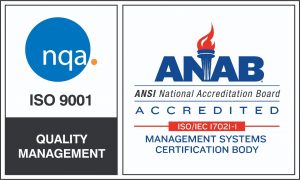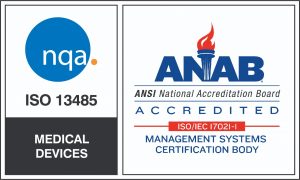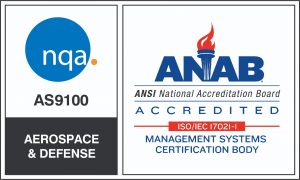 Computer-numerical control (CNC) machining is used for a wide range of projects. This trusted form of metal fabrication provides numerous benefits to businesses across a wide range of industries. From corporate executives to school children, we’ve all encountered devices created with the help of CNC machining. In fact, the creation of most modern-day devices involves this important type of machining.
Computer-numerical control (CNC) machining is used for a wide range of projects. This trusted form of metal fabrication provides numerous benefits to businesses across a wide range of industries. From corporate executives to school children, we’ve all encountered devices created with the help of CNC machining. In fact, the creation of most modern-day devices involves this important type of machining.
Business owners could gain a lot from learning about CNC machining and how it could benefit their business.
What is CNC Machining?
CNC machining uses computer-numerical control to operate machine parts like lathes, routers, grinders, shapers, mills, and more. Unlike other forms of machining, CNC machining does not require a human operator. Because the CNC machine operates under the control of a computer, CNC machining can produce precise and complex parts in very little time.
CNC Machining Benefits
CNC machining allows manufacturers to produce parts faster, reducing time to market and increasing the number of parts they can produce. Another benefit, CNC machining allows for the creation of consistent parts. This eliminates variances which are common with manual production.
Unlike human labor, CNC machines can work continuously This allows manufacturers to meet demanding deadlines. Once programmed, CNC machines only need to stop for occasional service. Although some additional maintenance may be required, most machines only need their cutting elements replaced during service.
CNC Machining Applications
Manufacturers use CNC machines to produce parts for multiple industries. CNC machining works with a broad range of materials including aluminum, stainless steel, carbon, titanium, brass, plastic, wood, gold, silver, and several synthetic materials. CNC machining makes fast work of many essential metal fabrication tasks including:
- Drilling
- Engraving
- Cutting
- Grooving
- Boring
- Contouring
- Lathing
- Milling
- Shearing
- Punching
- Shaping
- Stamping
- Facing
- Grinding
- Threading
- Texturing
- Welding
- Tapping
- Knurling
Multi-Axis Machining
Using multi-axis CNC machines, manufacturers can produce extremely complex parts and components from a solid piece of material. These machines provide additional benefits for organizations looking for precise and detailed components. Multi-axis machines are commonly used to create parts for the aerospace, medical, and defense industries.
Means Engineering provides contract manufacturing services to individuals, small businesses, start-ups, government agencies, and large corporations. Our 5-axis CNC machine allows us to create complex parts for a variety of applications. Please contact us for more information about our CNC machining capabilities.
 Outsourcing makes it possible for businesses to bring products to market faster and for less money than possible with in-house production. When OEMs partner with a quality electronics manufacturer they gain access to the tools, people, equipment, and technology needed to produce a wide range of products. This provides numerous benefits and can give the OEM a competitive advantage. However, it’s important that companies considering outsourcing take their time to learn as much as they can and locate an experienced ECM.
Outsourcing makes it possible for businesses to bring products to market faster and for less money than possible with in-house production. When OEMs partner with a quality electronics manufacturer they gain access to the tools, people, equipment, and technology needed to produce a wide range of products. This provides numerous benefits and can give the OEM a competitive advantage. However, it’s important that companies considering outsourcing take their time to learn as much as they can and locate an experienced ECM. When it comes to the successful design and production of electronic devices, strong partnerships can make all the difference in the world. Partnering with a qualified and experienced electronics contract manufacturer ensures quality assembly, on-time delivery, and continuous success in a wide range of markets.
When it comes to the successful design and production of electronic devices, strong partnerships can make all the difference in the world. Partnering with a qualified and experienced electronics contract manufacturer ensures quality assembly, on-time delivery, and continuous success in a wide range of markets. You have many things to consider when choosing an electronics contract manufacturer. Although you’ll probably spend some time negotiating price and other important aspects of your contract, electronic manufacturing certifications should remain non-negotiable. These important industry certifications ensure the CM you work with meets rigorous quality expectations as required by the industries they serve. Without proper certification, the CM simply cannot guarantee quality or that the product produced meets industry-specific regulatory compliance standards.
You have many things to consider when choosing an electronics contract manufacturer. Although you’ll probably spend some time negotiating price and other important aspects of your contract, electronic manufacturing certifications should remain non-negotiable. These important industry certifications ensure the CM you work with meets rigorous quality expectations as required by the industries they serve. Without proper certification, the CM simply cannot guarantee quality or that the product produced meets industry-specific regulatory compliance standards. Companies around the globe turn to electronics contract manufacturers to help them produce new products. Utilizing the help of an ECM not only saves money by reducing overhead, it can also improve the quality of products produced. This has multiple benefits including increased customer satisfaction.
Companies around the globe turn to electronics contract manufacturers to help them produce new products. Utilizing the help of an ECM not only saves money by reducing overhead, it can also improve the quality of products produced. This has multiple benefits including increased customer satisfaction.

